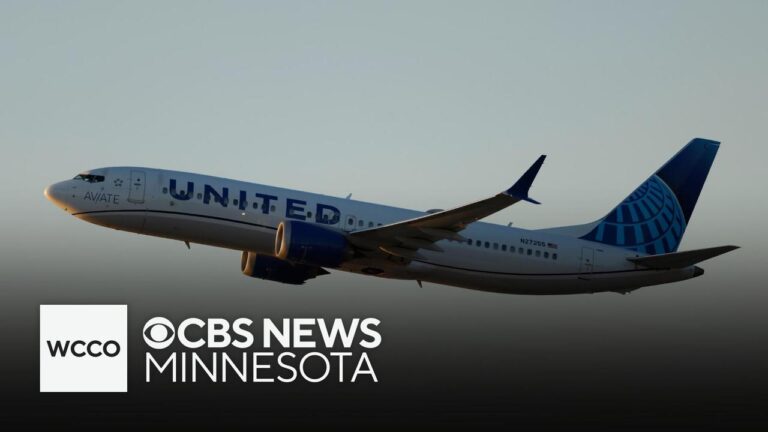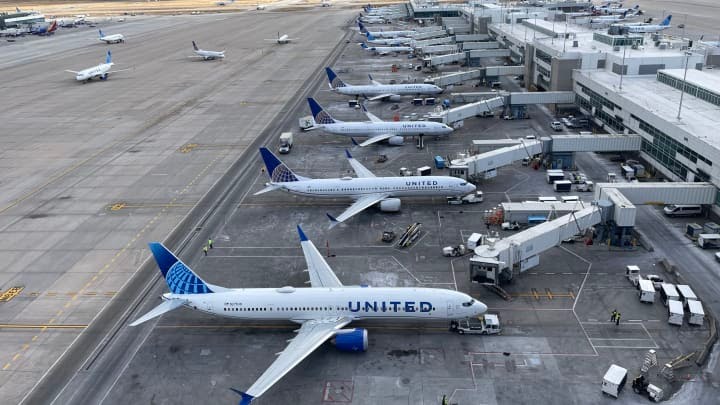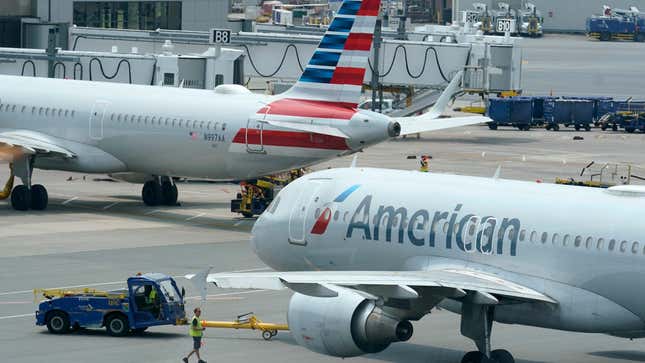United Airlines suspending daily flights to Israel amid rising tensions
United Airlines said it is suspending daily flights to Israel starting on Wednesday, citing security concerns amid rising tensions in the Middle East.
The decision comes after Hamas political leader Ismail Haniyeh was assassinated in Iran’s capital after attending the inauguration of the country’s new president. Iran blamed Israel for the strike, with its foreign ministry saying the U.S. also bears responsibility as Israel’s biggest ally.
United Airlines announced that it will suspend daily flights to Israel starting on Wednesday, citing security concerns amid escalating tensions in the Middle East. This decision follows the assassination of Hamas political leader Ismail Haniyeh in Iran’s capital, Tehran, where he had attended the inauguration of Iran’s new president. Iran has accused Israel of orchestrating the strike and has implicated the United States due to its close alliance with Israel.
The suspension of flights to Israel is a significant move for United Airlines, reflecting the severity of the current security situation in the region. The airline operates multiple flights to Israel each week, and this suspension will affect many passengers who rely on United Airlines for travel between the United States and Israel. The safety of passengers and crew is the airline’s top priority, and the decision underscores the airline’s commitment to operating only in safe environments.
The assassination of Ismail Haniyeh has intensified already high tensions between Israel and Iran. Haniyeh, a prominent figure in Hamas, was in Tehran to show support for Iran’s newly elected president. His death has triggered a strong response from Iran, which has vowed to retaliate against those it holds responsible. The Iranian Foreign Ministry has explicitly blamed Israel for the assassination and has accused the United States of being complicit, given its longstanding support for Israel.
This incident has added another layer of complexity to the geopolitical dynamics in the Middle East. Israel and Iran have a long history of hostility, with numerous incidents of covert operations and proxy conflicts. The assassination of a high-profile figure like Haniyeh is likely to escalate these tensions further, potentially leading to a broader conflict. The United States, as Israel’s main ally, finds itself in a precarious position, trying to balance its support for Israel with the need to avoid a larger confrontation in the region.
The suspension of flights to Israel by United Airlines may be a temporary measure, but it highlights the broader implications of the current situation. Air travel in and out of conflict zones is always fraught with risks, and airlines must constantly assess the security environment to protect their passengers and crew. The decision by United Airlines to halt flights is a precautionary measure aimed at mitigating these risks until the situation stabilizes.
This development also has significant implications for the aviation industry and international travel. The Middle East is a crucial hub for global air travel, and disruptions in this region can have wide-reaching effects. Airlines operating in the region will be closely monitoring the situation and may need to adjust their routes and schedules to ensure the safety of their operations. Passengers planning to travel to or from Israel will need to stay informed about the latest developments and be prepared for potential changes to their travel plans.
The assassination of Haniyeh and the subsequent rise in tensions also highlight the fragile nature of peace and security in the Middle East. Efforts to achieve a lasting resolution to the conflicts in the region have often been undermined by such incidents, which exacerbate existing divisions and create new challenges for diplomacy. The international community will be watching closely to see how this situation unfolds and what steps can be taken to de-escalate tensions and prevent further violence.
For United Airlines, the decision to suspend flights to Israel is a clear indication of the seriousness of the current security concerns. The airline will continue to evaluate the situation and will likely resume flights once it deems it safe to do so. In the meantime, passengers affected by the suspension will need to seek alternative travel arrangements, and the airline will provide assistance to help them navigate this disruption.
The situation in the Middle East remains highly volatile, with the potential for further escalation. The assassination of Ismail Haniyeh has added fuel to an already tense environment, and the implications of this incident will likely be felt for some time. For United Airlines and other stakeholders in the aviation and travel industries, ensuring the safety of operations in such a complex and unpredictable environment is a top priority. As the situation develops, airlines, passengers, and the international community will need to remain vigilant and adaptable to respond to the evolving challenges and risks.






